7 Wonders Edifice Expansion – also featuring Cities, Armada and Leaders
7 Wonders Second Edition is one of the most iconic and well-loved board games of the modern era, currently occupying a space well inside the BoardGameGeek Top 100 games of all time list – and just outside the Top 10 of specific, family-weight games. It is little surprise then that 7 Wonders Second Edition already features a number of expansions – including a brand new one called Edifice which is set to be released in February 2023.
In this slightly unusual review, I’m going to give you a brief rundown of each of the 7 Wonders Second Edition expansions one by one – beginning with the brand new one, Edifice. For me, each one of these expansions adds something new and interesting to the base game, and if you remove the insert, you can fit the whole lot in the base game box as well.

7 Wonders Second Edition – Edifice Expansion
As the newest addition to 7 Wonders Second Edition, the Edifice expansion has recently been the subject of a lot of interest. There was no such expansion released for the first edition of 7 Wonders, however, Edifice broadly comprises a reworking of one of the key modules in the first edition Babel expansion, which included both communal projects and a Tower of Babel module. The latter part of that expansion was never popular, but Edifice recreates the project module from Babel and enhances it with new components and perhaps a bit more balance.
With Edifice in play, the players add a single communal project for each of the three ages of the game, and then add to them a plastic token for each player, minus one. The cost of each edifice is clearly indicated in the top left corner, but a player can only contribute to one as an “add-on” action to building a stage of their wonder. If a player does contribute, they take a token to say that they did so, which will become relevant at the end of the age.

Broadly speaking, if enough players (which is always the number of players minus one) contribute to the edifice, then the card will be flipped and the project is complete. In this case, each player who contributed will take the benefit (perhaps some money, or the ability to build something for free) whilst the one player who did not contribute will get nothing. Conversely, if the edifice is not completed within the applicable age, then all players who contributed will suffer nothing, but those who did not will pay a penalty – which can be as harsh as having to discard a building that you’ve already played, or taking debt (negative points) if you can’t pay a fine.
There are also two new wonders in this expansion – Ur and Carthage – which provide additional options when setting up the game although Ur must be played with the Edifice expansion, whilst Carthage is not dependant and can be used with anything from the base game upwards.
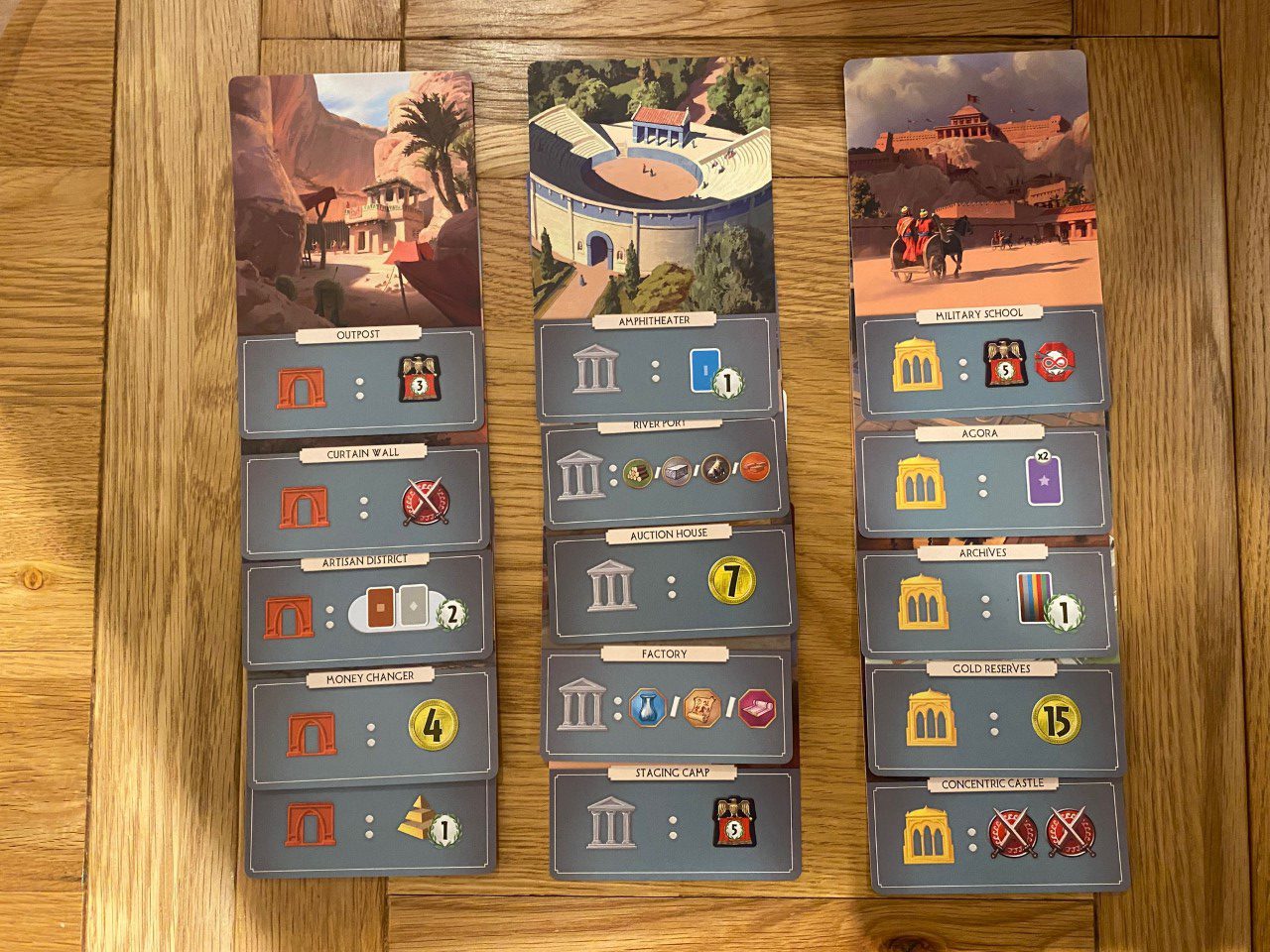
Edifice is a very low complexity expansion that can either be used on its own (with the base game) for a very minor increase in rules overhead and to increase player options, or it can be used with any combination of other expansions. Whilst perfectly fine on its own, I found that when used with Armada (below) the players had a little trouble tracking the follow-on actions for both placing cards (Armada) and when their wonder was advanced (Edifice) but this reduced over the course of several plays, and overall, we found Edifice to be a very satisfying addition to our game.
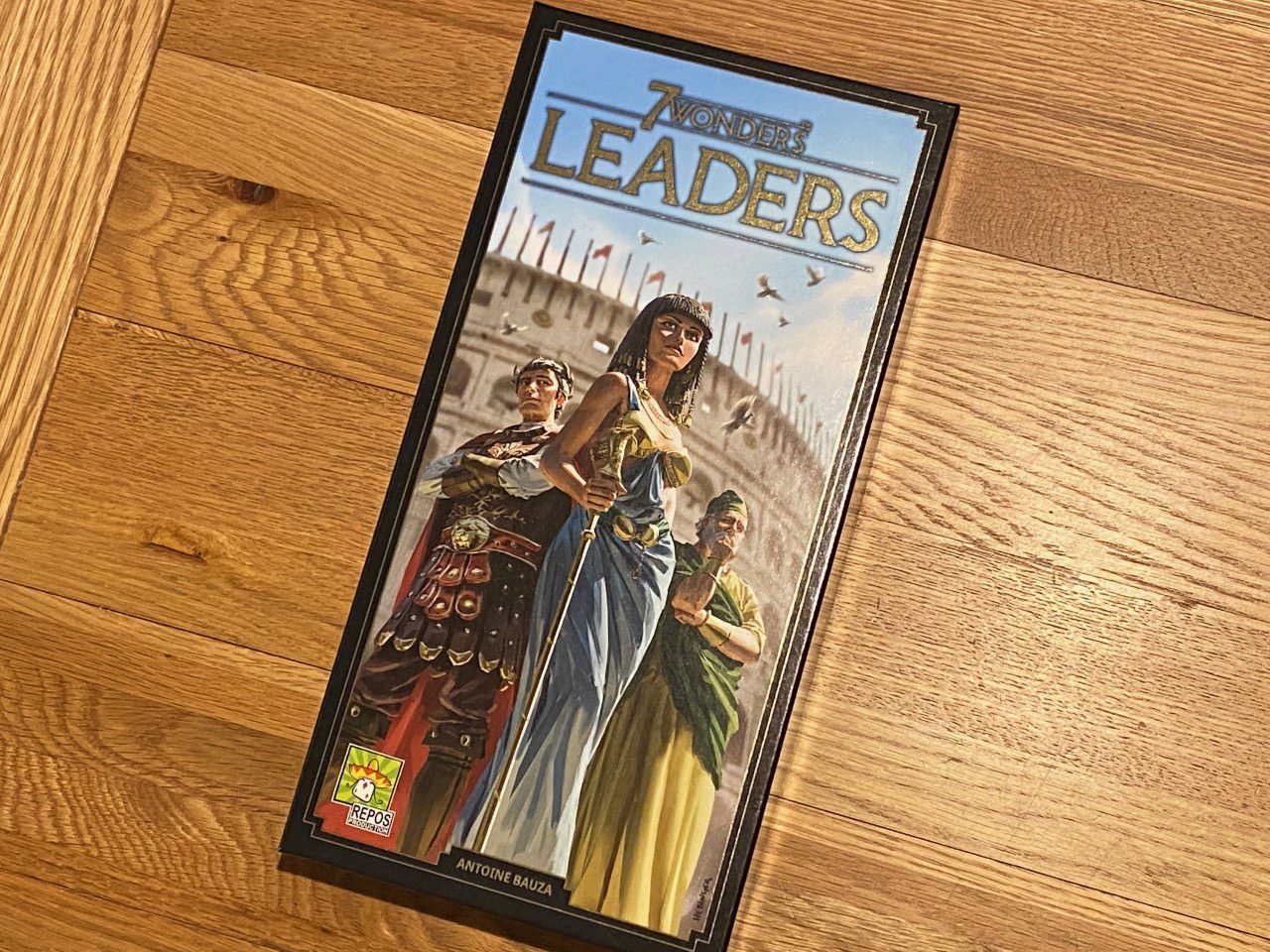
7 Wonders Second Edition – Leaders Expansion
The Leaders expansion, like Edifice, is quite a straightforward addition to 7 Wonders Second Edition, but it does deliver some fairly powerful benefits for those who are prepared to invest time and effort in focussing on the changes it brings. In short, Leaders simply adds a new deck of leader cards – including characters such as Plato, Cleopatra, Leonidas and many more from history, each of whom has a specific bonus.
At the beginning of the game, four leaders will be dealt to each player. They will then assess the leaders in their hand, choose one and then pass the others to the player on their left. From the three they receive, they will choose one and pass, and so on until each player receives a single card, which becomes their fourth and final leader. Now (before the first age of the game) and again before ages two and three, the players will choose one of three actions – to play a leader and pay for it, to sell a leader and take three gold, or to use their leader to build a stage of their wonder (as if it were a normal card.)
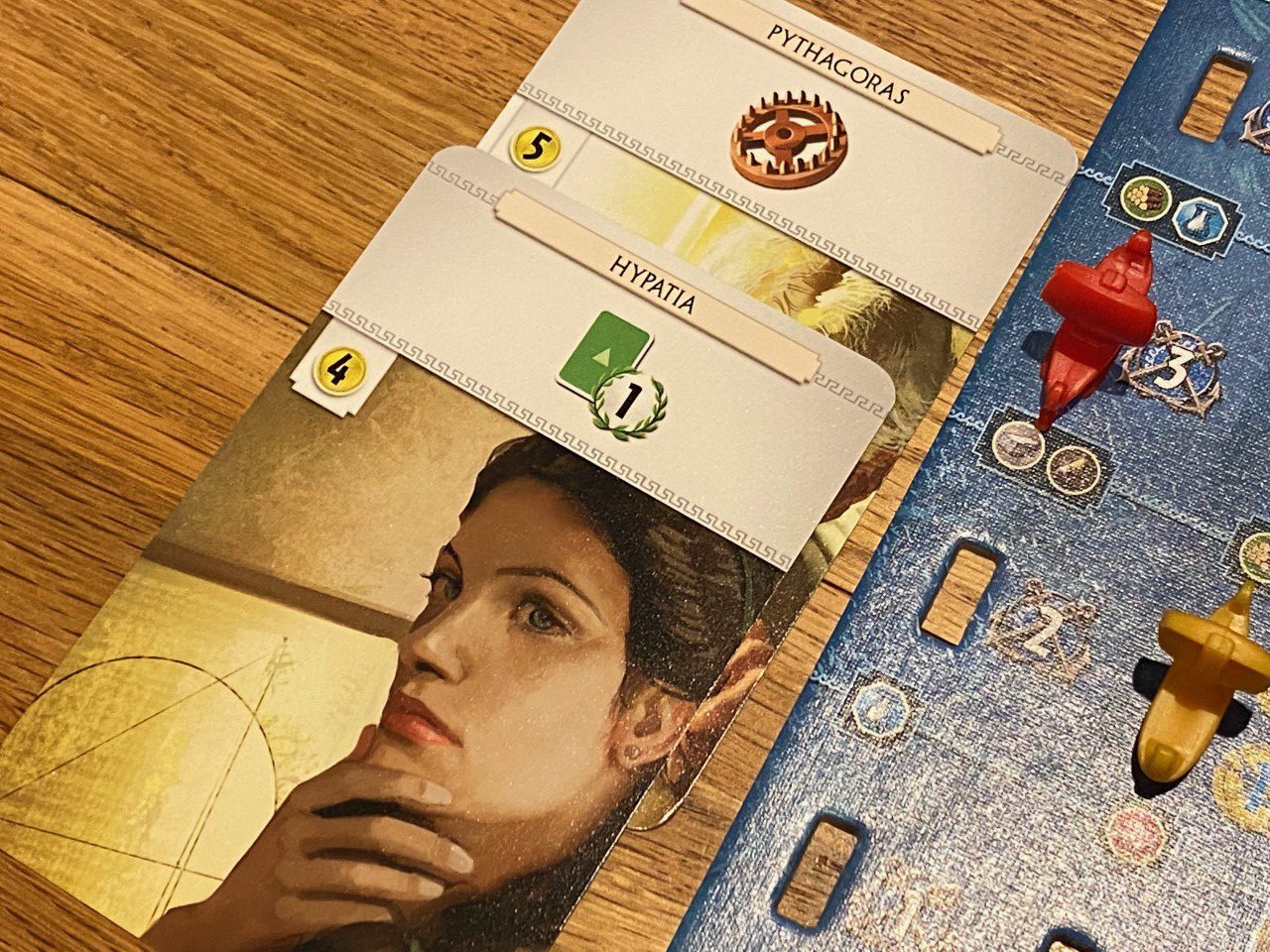
In most cases, the players will end up playing at least two of their leaders over the course of the game (and often three) whilst the fourth is always discarded after the choice for age three is made. Leader benefits include simple things like taking some money or gaining points at the end of the game, whilst more complex ones give discounts on certain types of cards, or score points based on your science symbols or having more cards of one type than your neighbours.
With Leaders in play, players have more ways to focus the development of their civilization in certain ways, and of course, if a lack of money is a major problem, they can always take the cash instead. Leaders basically adds flexibility and increases the overall power level for all players, allowing experienced players to hone in on specific strategies, whilst inexperienced players just have more options and more ways to make money, develop their wonder, or to score points. I would never play 7 Wonders Second Edition without Leaders at this point, as it’s so simple and adds a lot to the game.

7 Wonders Second Edition – Cities Expansion
In the Cities expansion for 7 Wonders Second Edition, a number of new concepts were introduced – including debt (which is also found in Edifice) and cards with a black background, which often have negative impacts for opposing players – for example because they represent one player raiding the other, or perhaps imposing unfavourable taxes. You can always tell a Cities card because it will feature a dagger as its expansion symbol – which is quite fitting.
In addition to the new cards and the concept of debts, Cities also includes a number of new diplomacy standees. When a player receives one of these, it will allow them to skip a military phase completely, ensuring that if they are between two players with higher military scores, that they will be able to thematically “talk their way” out of the conflict. Instead, these two players will now ignore the peacemaking player and instead, will fight each other.
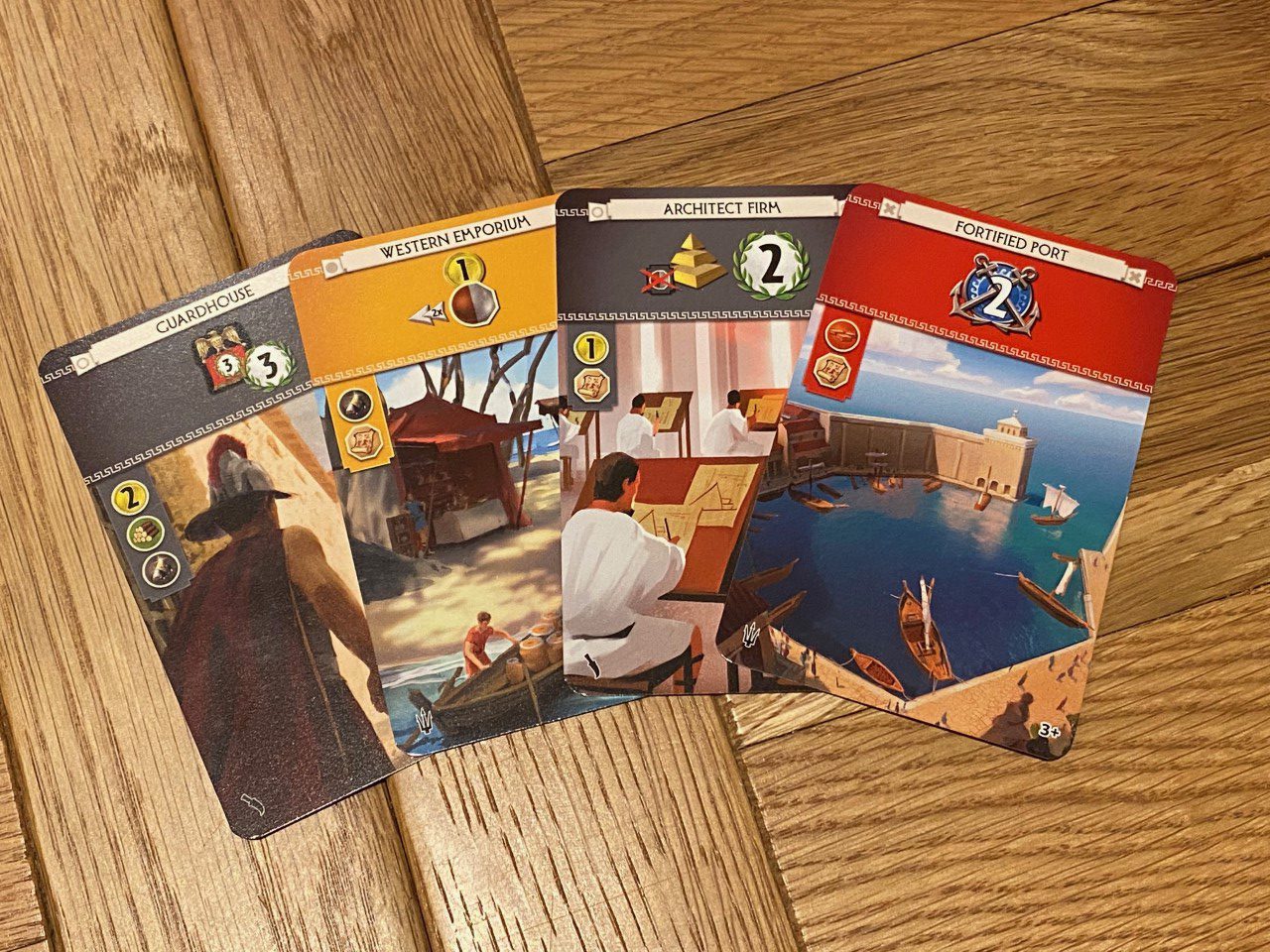
Finally, Cities includes two new wonders in the form of Petra and Byzantium. Both of these wonders use elements from Cities such as taking coins from other players when a stage of your wonder is completed (ostensibly branded as taxation) but otherwise, these wonders can be used with any combination of expansions, and as far as I can tell, don’t specifically need the Cities cards to be with them.
Cities is a mean expansion in terms of the interactions it forces on other players – with coins often targeted and a few cards that do worse still. That said, the introduction of the diplomacy idea is the opposite of this and I really like it, whilst the black cards are all quite unique and varied – with some allowing you to count your neighbours buildings among your own for scoring, for example. Cities is not a “must include” like Leaders is, but it’s a simple expansion that adds a few new icons, but little additional rules overhead.
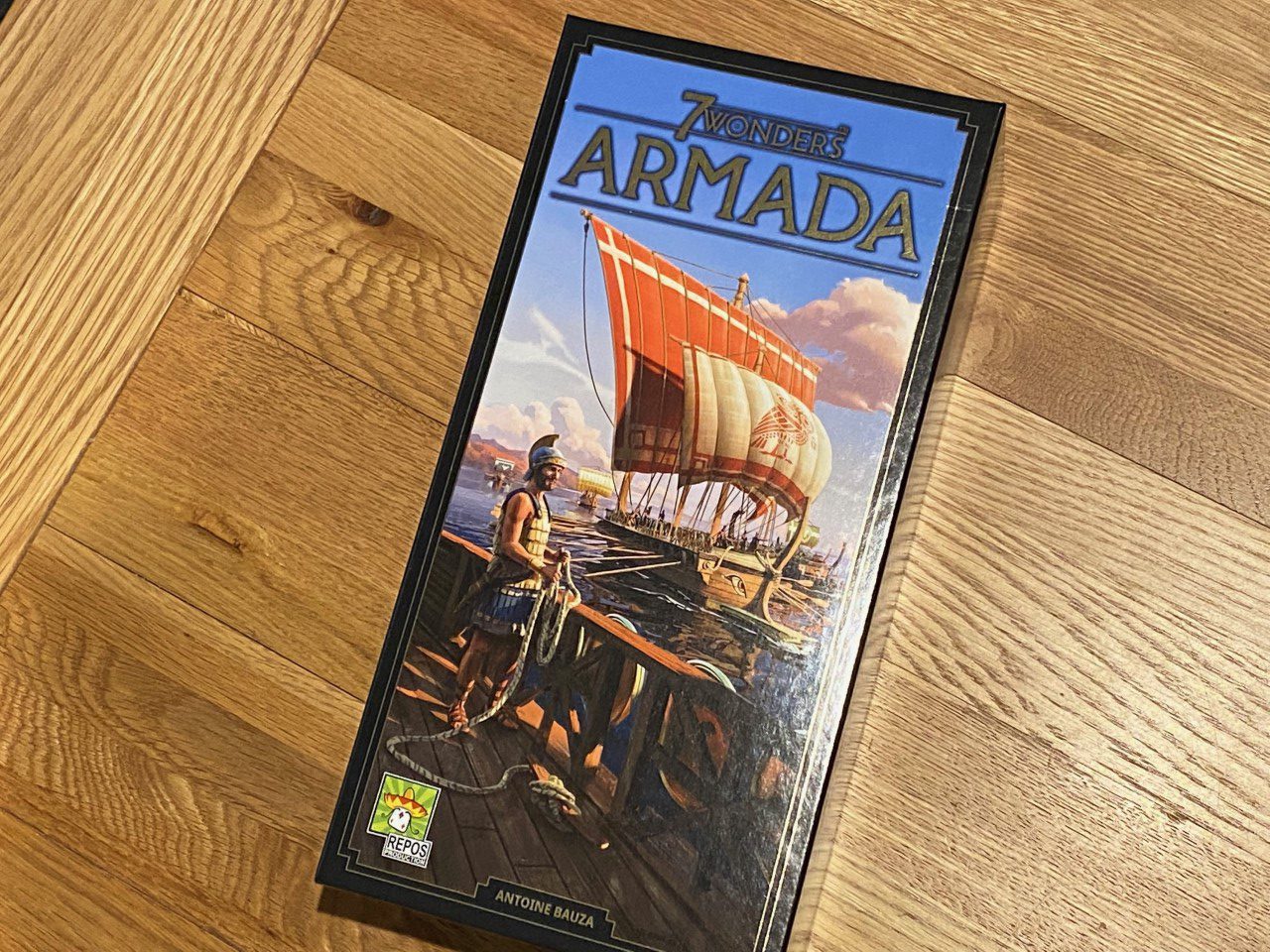
7 Wonders Second Edition – Armada Expansion
Without doubt, Armada is the largest and most complex of the 7 Wonders Second Edition expansions. This expansion adds a naval board to each players wonder along with fleets in each of four tracks – yellow, blue, red and green as well as new cards, a new deck of island cards and a single new wonder (Carthage.)
Each of the four tracks matches one of the four colours of cards in the age decks, and the way that ships advance from bottom to top of the tracks is through an add-on action whenever a card is played. Simply put; if you play a yellow card to your civilisation, you can then pay an additional cost (as printed on the armada board) to advance the yellow ship up its respective track – gaining whatever bonus is printed there.

The blue track focusses on points (just like the blue cards do) whilst yellow represents commerce in the Mediterranean, red is military might and green is exploration – and it is the final green track which unlocks access to the island cards (most of which are added to your empire for a bonus in the same way as a building card.) The real difficulty with adding Armada to your games is not this track though, it’s the sheer number of new icons that it adds, and the fact that the add-on action of moving ships is easily overlooked.
Play with just the base game and Armada for a while though, and you’ll soon start to get the hang of it, and then adding in the simpler expansions becomes very straightforward (since several symbols are shared.) Another new feature that Armada adds is naval battles – which take place after the standard military showdown. When the naval battle occurs, ALL players are involved and compare their naval strength (which is entirely separate to military strength) with points given for the highest score and lost for the lowest… The catch here is that the naval battle (of which there is only one) has a higher prize and a worse downside for those who win and lose – making it perilous to ignore.
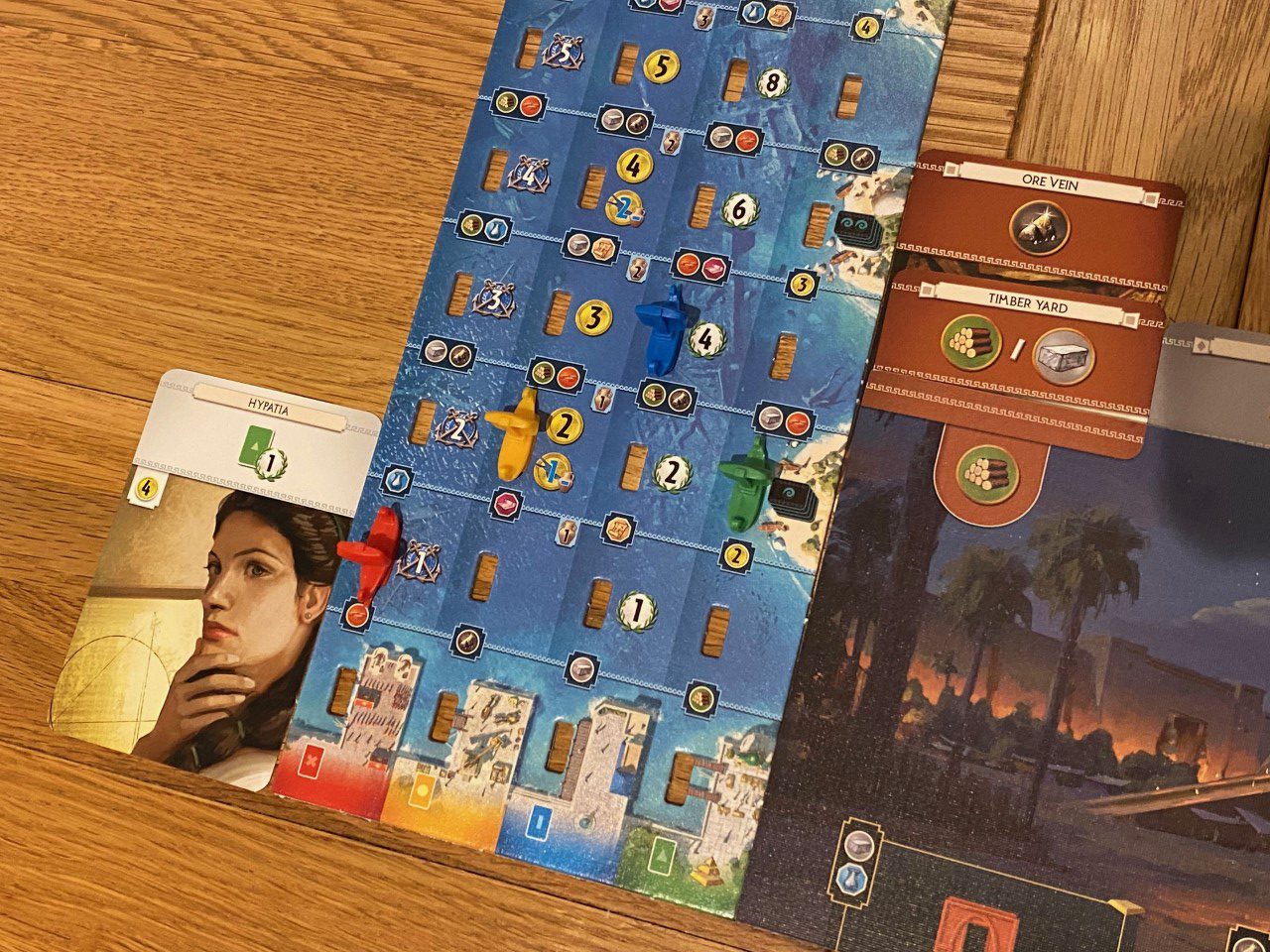
Armada is perhaps the flashiest and most visible expansion when laid out on the table due to the additional boards and the extra deck of cards, and I think it’s fair to say that objectively, it does add the most “stuff.” The shipping tracks are a nice addition, offering a fairly frequent and simple way to spend resources that you don’t need for building, whilst simultaneously getting some good for your trouble. I particularly like the islands, but I also enjoy the interplay between age cards and the commerce (yellow) track, which leads to some interesting strategies.
As mentioned in our “Month of 7 Wonders” piece, there are a number of special incentives during February 2023, so there’s never been a better time to check out your friendly local game store to see what bundle offers and discounts you can access!
You can purchase the 7 Wonders expansion pack, Edifice, on Amazon.
Comments are closed.